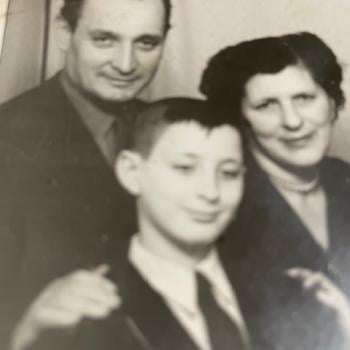A familiar maxim teaches that ‘to know one religion is to know none.' Our religious traditions did not evolve in a vacuum -- they are inter-related, and many aspects of our faith traditions cannot be understood without knowledge of other religions. In other words, learning about other religions helps us make sense of our own. Encountering other faiths also directs our attention to muted theological strands in our own tradition. We can experience "holy envy," appreciating new languages to praise God while still being devout and faithful to our own tradition.
Interfaith dialogue is one of many approaches we use at Auburn Seminary as part of a larger enterprise called multifaith education. We work with many different kinds of people: teenagers from areas of conflict around the world, seminary students and religious leaders, even scholars, business leaders, and the media.
To a skeptic who says that interfaith dialogue is just talking and won't change anything, I say two things. First, it's good to be a skeptic. There are good reasons to doubt the impact of interfaith dialogue -- especially dialogue that does not form long-lasting relationships, change hearts and minds, and lead to action. Second, I say that the consequences of not engaging in dialogue -- of not learning about other faith traditions -- are likely to be dire. For better and for worse, faith traditions all over the world continue to have a major impact on both local and global events. Our security as human beings is now directly related to the capacity of people of faith to understand each other better.
Waging holy war is easy. Waging holy peace is painstaking. There is no alternative to the deliberate and difficult process of engaging people of different faith backgrounds in dialogue, and by doing so, coming to a better understanding of them, of our own religious traditions, and ultimately, of the divine.
Rabbi Justus N. Baird has served as the Director of the Center for Multifaith Education at Auburn Theological Seminary in New York City since 2007. He oversees the seminary's multifaith programming, which strives to prepare religious leaders for a religiously diverse world. He has taught, preached in, and consulted with seminaries, churches, synagogues, mosques, and interfaith organizations. He teaches the Multifaith Seminar in the Multifaith Doctor of Ministry Program (a partnership between Auburn and New York Theological Seminary). His chapter "Multifaith Continuing Education: Leading Faithfully in a Religiously Diverse World" will be published in the revised edition of A Lifelong Call to Learn: Approaches to Continuing Education for Christian Leaders (Reber and Roberts, eds.). Raised in Texas, Rabbi Baird lives in Princeton, NJ, with his wife Rabbi Julie Roth (Director of the Center for Jewish Life at Princeton University) and their two sons.




